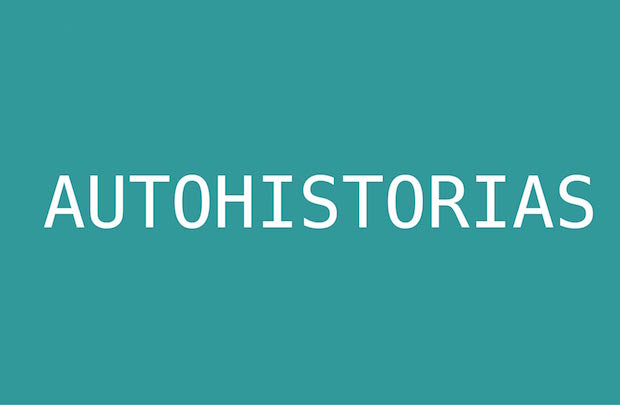Autohistorias, season 2017
“Personal experiences – revised and in other ways redrawn – become a lens with which to reread and rewrite the cultural stories into which we are born.”
- Gloria Anzaldúa, Now Let Us Shift... The Path Of Conocimiento…Inner Work, Public Acts, In This Bridge We Call Home: Radical Visions For Transformation (2002)

Europe is going through times of turmoil, as our continent experiences nationalist and separatist polarization and debates on identity shatter social relations. Moral panics over refugees and Islam shake our fragile social fabric. Europe’s dereliction prevents any vision for a just and open society from being brought about. Several generations of migrants and their descendants feel forever suspended in time as if they had just arrived. As national narratives fail to acknowledge their historical role, a hopeless youth feel increasingly estranged from its institutions. As stated by theorist Fatima El-Tayeb, their omission from historical accounts within educational and institutional curricula should be taken as a possibility to organize subversion. It is now time we reclaim our precarious lives. We must acknowledge and embrace the complexity of our social identities. We must look back critically at the misrepresentation of diverse perspectives and reconfigure who is being heard. All-encompassing narratives used to obfuscate problems bred by the obliteration of migrants from European narratives. They now fail to keep us together, and now is the time to reclaim our institutions.
Autohistorias is the title I want to put forward for Bétonsalon and Villa Vassilieff’s 2017 programs. I borrowed it from the Chicana feminist theorist and poet Gloria Anzaldúa, who coined the term to define an empowering mode of writing grounded in deploying the subtleties of the personal as a narrative tool. It expresses the potential of multiple, ambivalent, unstable, and performative identities. Autohistorias is a poetic form made of different words, languages, and modes of narration (testimonies, tales, theory, and poetry among others) overcoming oppositions in non-linear and singular ways. We must contribute to disseminating depolarized narratives of plural and transient identities. Autohistorias epitomizes an alternative mode of coping with dominant ideologies. Autohistorias negotiates and destabilizes borders, it disrupts and reorients, creating a network of marginalized and shifting identities. Our lives are all but fragile and precarious. Yet they are multiple, collective, and uncontrollable. I want to talk about these journeys made of diversion, exaltation, and resistance. I am convinced that a shared narrative must be built from this peculiar yet collective accumulation.
Working in close collaboration with public collections, notably the photographic archive of Marc Vaux (Centre Pompidou), I embarked on the creation of a residency and workshop space dedicated to reassessing the living experiences of the many artists who converged to 20th century Paris. We can write another history of Modernism, one that is no longer defined by the myth of industrial progress but rather built from individuals adrift, shifting cultures, and exile. I sincerely think art can help us envision alternative histories and investigate ignored and marginalized life stories that echo their collective context.
Our 2017 programs will be an opportunity to entwine a plurality of worlds. Bétonsalon and Villa Vassilieff will create a hub for dialogue addressing our current political situation. We aspire to generate an economy of conviviality, where visitors can spend time chatting around artworks and discussing personal experiences, collective memories, and hardships of living together. The newly refurbished Bétonsalon will bring about new visiting and working conditions, and offer two solo exhibitions by artists Emmanuelle Lainé and Candice Lin, both developed in close collaboration with Paris Diderot University and the “Académie vivante” (Living Academy) research laboratory. Villa Vassilieff will be turned into a house inhabited by seven projects. A constellation of international guest curators and fellows in residence will undertake research projects mingling historical and contemporary practices.
I want to account for those artists who know how to express their unstable selves, singular roots, and raveling routes with sincerity and commitment. Articulating feelings and struggles is a necessary starting point to augment memories and create subversive audiences. I yearn for a program permeated by human beings and their emotions, by passion, compassion, fear, protest, and fragility. While exploring the myriad ways in which artists use these materials, we will be confronted to territorial instability and temporal disjuncture. We will be looking closely at individual practices through underexplored standpoints.
We can imagine a shared history. A history that is not imposed from the top, but rather collectively elaborated from peculiarities and odd itineraries in a fragmented world. In troubled times of division and conflict, those histories help us develop translocal forms of resistance and invent new cosmopolitan horizons.
Mélanie Bouteloup
Partager